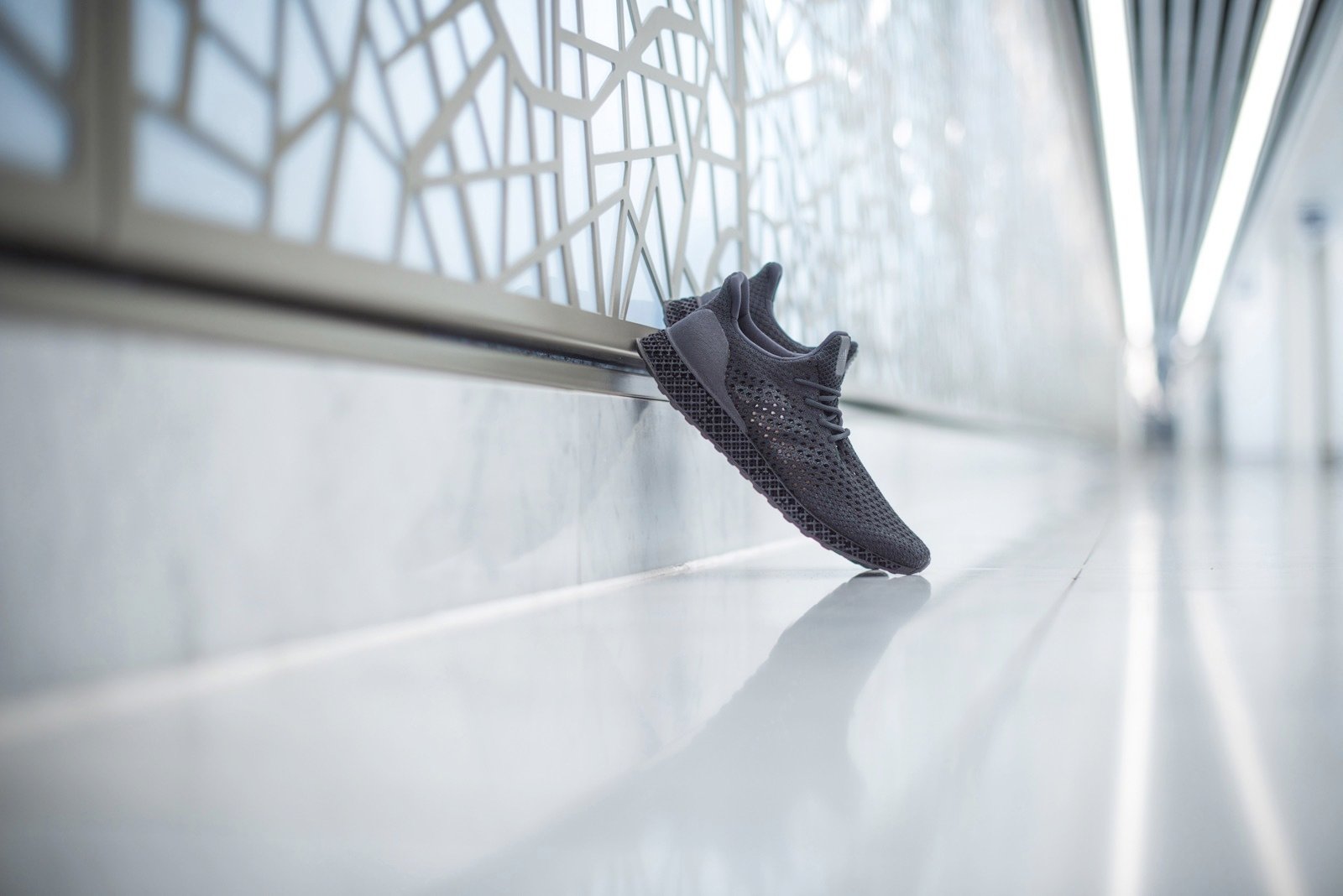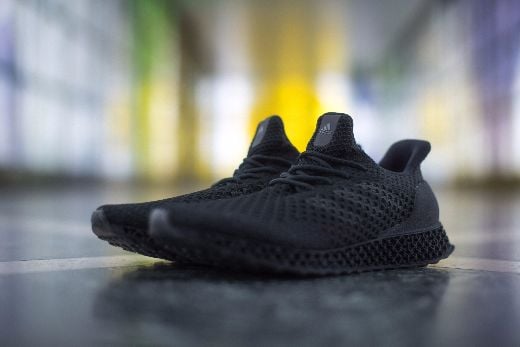
Though 3D printing technology has been available for over two decades, it has not gone mainstream as hoped because of the high cost and slow print speed. But that may change soon, thanks to German sportswear manufacturer Adidas. On December 15, 2016, the company revealed Adidas 3D Runners, stylish sports sneakers featuring a 3D printed midsole that provides athletes with the extra cushioning needed for optimal performance.
Unlike traditional midsoles, these are not a uniform foam, but web-like structures with varied density to take into account the impact areas of the foot. This means that the mesh is thicker in the shoe’s front and posterior, both of which hit the ground hard when the athlete runs. A 3D-printed heel, incorporated into the midsole, eliminates the need for traditional gluing or stitching. The shoe upper, made of Primeknit, a mechanically knitted yarn, allows for increased flexibility, stability, and protection in the impact areas.

Not surprisingly, the stylish, limited edition black training shoes that were only available for sale in New York City, London, and Tokyo and cost a hefty $333 USD, were an instant hit and sold out within hours of their release. Though not affordable or available to the mass market, the radical shoes are an encouraging step in the right direction for more widespread use of the technology. Adidas is working on making additional 3D printed gear, and as the technology develops and printing speeds increase, the prices will start to head down.
Being able to offer 3D printed shoes at a low cost has the potential to change the shoe industry as we know it today. That’s because instead of having to choose from ready-made sizes, customers will be able to customize footwear so that it fits their feet perfectly. The process would also be cost-effective for the manufacturers given there is no wasted material or excess inventory.

While printing 3D objects may sound complicated, the process is relatively straightforward. Once the design is downloaded to a printer, a laser creates a layer of material, usually plastic or metal. Successive layers are deposited above one another and fused together until the product is complete. The technology can be used to build everything, from shoe soles to a microwave oven. There is currently even an effort underway to make a printer that is large enough to create the cement layers required to build a house.
Resources: endgadget.com, wired.com, dezeen.co